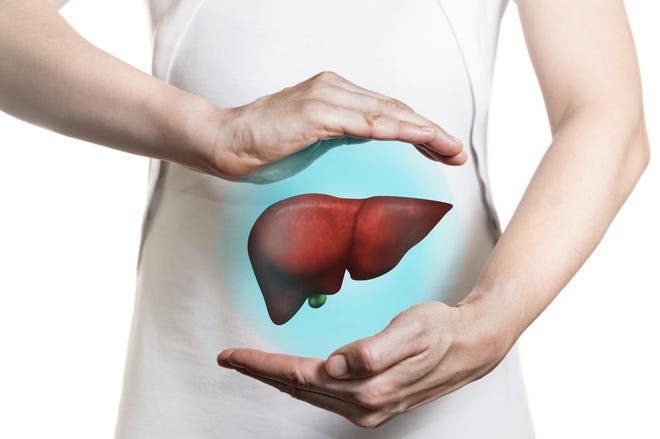Ask the Pharmacist: Make more catalase; it's good for your health

Catalase is an important enzyme you make in your liver, just like glutathione. These are both strong antioxidants. Today’s focus is on catalase.
It’s incredibly important to your health and I hope you are still making enough of it. If you’re not, all kinds of health problems can ensue. That’s because catalase breaks down a poison, turning it into water and oxygen. If you don’t have enough catalase, the poisonous peroxide builds up in your tissues and organs. The thyroid will suffer, as will arteries and all of your organs.
One catalase molecule can convert millions of hydrogen peroxide molecules to water and oxygen each second! You could say it prevents “rusting” in a way. Reducing peroxide via catalase is therefore anti-aging: It reduces the speed at which one rusts (or turns gray).
We know this because aberrations in the genetic CAT code (think SNP!) will cause the CAT gene to stop producing normal, healthy amounts of the enzyme catalase. This can lead to premature graying of the hair.
Catalase is used commercially in the dairy industry to remove peroxide from milk prior to making cheese. It protects garments from peroxide during the fabric making process, especially polyester. Contact lens makers rinse the peroxide off with catalase. In the human body, catalase acts like a vacuum cleaner, similarly to glutathione, another potent antioxidant. It can help with hypertension, which is a silent disease that leads to devastating consequences if not controlled.
There was an important study about this. Researchers studied one of the most popular blood pressure medications of all time called “lisinopril.” Brand names vary. The researchers evaluated the effect of lisinopril on cholesterol and blood pressure, because as you know, an increase in either of those raises risk for heart attack and stroke. The researchers determined that lisinopril did not have any impact on lipids or cholesterol, after all it is for hypertension.
But the interesting thing is that they noticed a catalase connection. The higher the blood pressure was in a participant, the lower the amount of catalase enzyme present.
Lisinopril seems to work, at least in part, by raising your catalase levels, specifically in your red blood cells. This in turn, will improve blood pressure numbers, both systolic and diastolic. This suggests that lisinopril has a secondary mechanism of action ... the first being that it’s an ACE inhibitor and the second being it raises RBC (red blood cell) catalase.
And would supplements do the same? No one can say and the reason is that the drug is raising endogenous levels of catalase. No supplement was given to these participants and besides dietary supplements do not cure diseases and no claims can be made in that regard according to current FDA guidelines. I want to be clear in case they read this, I am referring to the catalase enzyme you make inside your body. The information I’m sharing is based upon an article entitled, “Can Erythrocyte Catalase Regulate Blood Pressure?” which was published in 2016.
Your body manufactures its own catalase, it’s critical to make more of it by maintaining liver health. This is a potent antioxidant that also destroys formaldehyde too. If this topic interests you, and you would like to read the longer version of my article and learn more about formaldehyde sources, please sign up for my free newsletter.
More:Ask the Pharmacist: 5 factors that weaken your immune system
And:Ask the Pharmacist: Unusual signs of D deficiency
Also:Ask the Pharmacist: 8 major drug muggers of iron
Suzy Cohen is a registered pharmacist. The information presented here is not intended to treat, cure or diagnose any condition. Visit SuzyCohen.com.